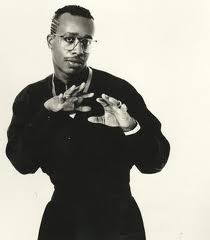[EDIT: I want to add a quick note to this article because of some confusion that became obvious to me in conversation. I am not creating a dichotomy between atheists and humanists; I am commenting on the differences between people who prefer one title over the other. In my experience, which term a person primarily identifies with tells you something about how they view the issue of how to deal with religion. Do we take an oppositional stance or do we focus on our positive values which may overlap with religious values?]
Today, on facebook, I ran into this:
The ‘humanist’ label is a fine alternative to one of the hundreds of religious affiliations. It is certainly finer than ‘agnostic’ or ‘athiest’, as they define thenselves against something rather than for something….
Now, many people in the greater community of reason, of which I and the other atheists are a part, prefer the term humanist to atheist. Others prefer freethinker, rationalist, or….Bright (I dislike that last one very much, as do many others I know). I prefer atheist for a number of reasons. Now, this does not mean that I’m not a freethinker, a rationalist, or that I’m not bright (Oh, please stab me with a spoon!), but it means I prefer the term over others such as humanist.

But the technical fact is I am a humanist in many ways. The humanist ideals and values are things I generally agree with. The Humanist Manifesto, for example, demonstrates ideas that are largely similar to my own ideas, and where I might quibble or disagree it does not lead to a drastic difference of opinion. For the most part, I find the manifesto to be pretty bland and uncontroversial; its liberal and progressive Christianity without the Jesus, Reform Judaism without YHWH, unitarians without…well, it’s sort of like them, actually. My disuse of the term humanist is caused by the same basic reason that I don’t attend unitarian services; I simply have no need for it and I often feel like its just a little too much like theistic religion. As Nietzche put it, it is really a matter of taste–to much stale air!
Therefore, I don’t think that the quote at the top of this post is sufficiently convincing to change my attitude towards the primacy of atheism over humanism in my self-reference. The reason has everything to do with the quote above; I define myself as being against theism primarily. It is a value of mine to be against this idea of supernaturalism, not as a mere rebellion, but as a matter of recognition that it has more reach than humanists give it credit for. It has worked its tendrils into just about every concept, value, and sector of our culture in ways that make our attempts to be “for something” a difficult task if we value truly escaping the clutches of theistic thinking.
While I am not opposed to, and often support, the creation of new values and ways of life other than that created by our largely religion-infused western culture, the fact is that the predominance of that culture necessitates a defensive position in many cases. That is, the ubiquity of religious ideas, even where there is no actual supernatural belief present, is so suffocating that new values become unwitting atavisms. Humanist values, often thought of as being new or at least different, are usually mere secularized religious ideas, mostly due to the fact that religion usurped them millennia ago. But religion did not merely adopt these values in those ancient days, it changed them by infusing them with the anti-life message of sin, depravity, and shame. The stain is old and hard to remove even by those humanists who seek to become reborn out of religion–an image surely evocative of something.

Even among atheists, the acculturation of a religious ideas has infected the minds of people to such a degree that even when they reject the theology, they often still hold onto much of the structure of the morality and behavior. Atheists may not believe that we were created by god to live such a way, yet they still often hold onto archaic sexual norms, conventions of respect for people’s personal beliefs, and cultural definitions of relationships (such as marriage as being between two people of opposite gender). I have heard atheists who still suffer from discomfort with their own sexuality, try to shame me into not criticizing religion openly, or who actually argue against gay marriage or polyamory. Only the stain of religious thinking can be responsible for this (at least I’ve heard no good arguments which are not based upon religious ideas, ultimately). Thus, when people leave religion and create new ways to think, like secular humanists do, often their actual lives are not in any way truly new or revolutionary in any way. They just drop the problematic metaphysics and declare that the rest of their values are their own. I am somewhat cynical of this claim; I think their new values are often still pretty traditional and even conservative. But at least its an improvement over pure theistic religion, in any case.
I don’t think enough people in our culture are prepared for new values yet. I think too many people are incapable of conceiving of new values, and simply replace their old ones with new personas, while still the same deep down. Many pagans, wiccans, and other alternative new age religions are guilty of this. They hate or at least dislike their old religion, and so they replace the mythology with another, while keeping the scars of their religious foundations intact and very influential; they often don’t actually grow, they just change clothes. And many people still value the words, and what they see as the personality, of Jesus Christ. They don’t believe he is god, but they see his message as good. This is the essential problem; Jesus’ words were often insane, non-pragmatic, and dangerous. He is not the highest of moral teachers, he is a character of his time who idealizes for us bronze-age morality which we should have out-grown by now. The whole and central moral message of Christianity is perverse and vile, and it is holding us as people, as a society, and as an influential culture, back from truly growing and transcending ourselves. And while humanism is not trying to accomplish this atavism–or at least the slowing down–of our growth, it often achieves it anyway.
To truly create new values, we must do philosophy with a hammer (as Nietzsche suggests in his Twilight of the Idols). We must utterly destroy the values which we have before us. And if we find, after everything has been

smashed, that we create new values that look a little like those smashed idols, then so be it. But we, the atheist community, are still trying to teach new people how to wield their own hammers. And until all is questioned and all corners of our culture analyzed with the skeptical tools of science and logic and we are able to think more clearly about our history as a world of freethinkers, humanism will be a premature step for many people.
Don’t get me wrong. I want the humanists to keep up their program. I want those who have trashed their own cultural houses to keep building, but I want them to remember that there are many other people still smashing, as well as many more protecting their idols from those of us who want to hand them hammers. So, humanists, while you are attempting to build values for yourselves and for others to adopt when they are ready, remember that you still may have missed an idol or two, probably in the attic, basement, or perhaps you didn’t notice that you were clutching it. Also, remember that we new atheists are with you (in spirit), but someone needs to keep handing out hammers. And the title for such a person must still be “atheist.”
Happy smashing!
I agree that the hammer needs to keep smashing, but, and maybe it is just from different personal experience, I think that it is wrong to assume that the majority of us pick one or the other to identify with. It seems you feel that atheism is the only label you will use with yourself regarding philosophy. I myself and plenty of my other fellow atheists and humanists tend to use the appropriate term in the appropriate context and also use both when it is appropriate. Again, this is only from my personal experience, and there are not a huge number of out atheists that I know of here in Nebraska. As an example, there is a Midwest Humanist and Freethought conference coming up put on by the Omaha Athiests. Make no mistake, these folks definitely identify as atheists, but also identify as humanists.
Do not get me wrong here. I have met with the example that you saw on Facebook, and it does make me cringe. At last year’s Midwest Humanist Conference (yeah they added Freethought this year) Darrel Ray was a speaker. He was talking about how religion has been an infection on our sex lives, as he is wont to do. He was discussing polyamory and not being ashamed of being open about sex and nudity and even having intercourse in front of children. I was very into his talk, but the person I was with happened to be watching the reactions of others in the room. She told me that his talk was not being taken well, especially by women attendees. I guess I am pointing out that, yes, everything in your post about how we still have “monster in the closet” values that came from religion is true. However I do not think that one should be placed over the other, but that they are merely different and can coexist. Sure there is a stain placed on the ideas of humanism by religion, but I think it wrong to use that as an excuse to abandon the identifier, especially when the proposed alternative, atheism, has a much deeper stain that was given to it by the faithful.
My objection to humanism is similar to yours. Organized humanists want to set up godless churches. If I wanted that, the Universal Unitarians already cover that option.